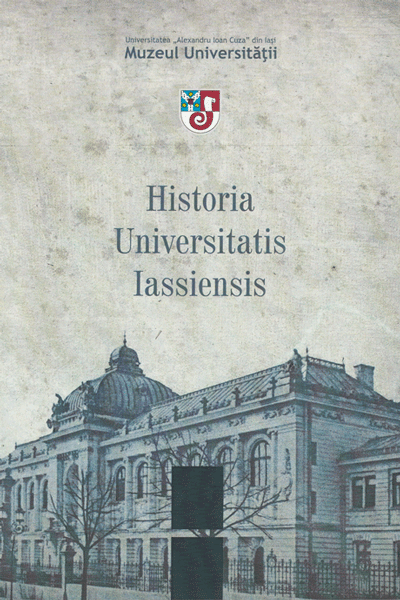Propagandă politică și mentorat la Universitatea din Cernăuți în perioada interbelică
Political propaganda and mentoring at the interwar University of Cernăuți
Author(s): Anca FilipoviciSubject(s): Cultural history, Social history, Recent History (1900 till today), Interwar Period (1920 - 1939)
Published by: Editura Universităţii »Alexandru Ioan Cuza« din Iaşi
Keywords: University of Cernăuți; political radicalism; mentoring; anti-Semitism; student movement;
Summary/Abstract: This study outlines the political frames of the interwar University of Cernăuți by interpreting the relational structures in the academic milieu of Bucovina. The text brings forward the university professors that counted as relevant options for student mentoring. As creator of the Romanian university in Cernăuți after 1918, the liberal Ion Nistor represented the core personality of the interwar institution. Joining his entourage could determine a professional chance for both students and professors. However, most of the nationalist students, dissatisfied with the conditions of the student life and the competition with other ethnic groups, rejected the attitudes and political discourse of the traditional parties. Disciplinary sanctions, often extremely demanding, led to an autistic dialogue between authorities and students. Only a few of the teaching staff seemed to empathize with the student problems and demands. Thus, youth nationalism was to slide into political radicalism encouraged by professors proliferating extremist propaganda, like Traian Brăileanu or Dragoș Protopopescu. The sociologist Traian Brăileanu already had a strong political activity in Bucovina and was renowned for his nationalistic and anti-Semite approach. Nominated as member of the Legionary Senate, Brăileanu was also noted as mentor of nationalist youth in Cernăuți. His political propaganda had two levels of interaction: lectures or involvement in the student movement and mentoring within Iconar group and Însemnări sociologice [Sociological Notes] review. The younger colleague, philologist Dragoș Protopopescu, embraced gradually the far-right ideology, informal adhering to the Legionary Movement. His ideological path was mainly shaped in press articles and literary works. The topics revealed a constant criticism of the traditional parties whom he accused of dependence on Jewish finance, but his interest was also directed to an intense support of the aspirations of the nationalist students. Protopopescu praised the “constructive” project of Legionary Movement and enrolled as candidate for the movement’s party in 1937 elections. The precariousness of student life, the lack of perspectives for graduates and the harsh access to resources were a consequence of the inefficient educa¬tional policies. Romania was unable to properly adapt the educational system to the new configuration of the interwar society. The complex situation favored the slide of the youth to political radicalism, while this option was also strengthen by the influence of the far-right professors. However, the consequences of their ideology proved to be fatal for mentors and baneful for students.
Journal: Historia Universitatis Iassiensis
- Issue Year: 2016
- Issue No: 07
- Page Range: 29-50
- Page Count: 22
- Language: Romanian

